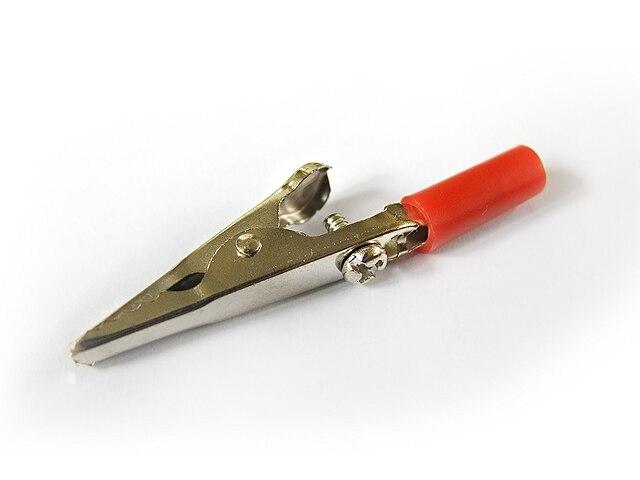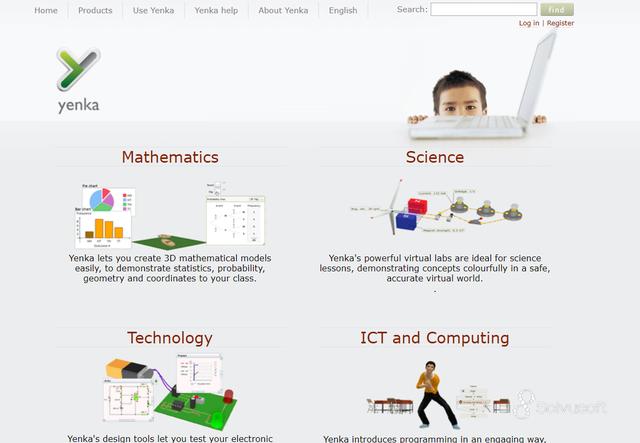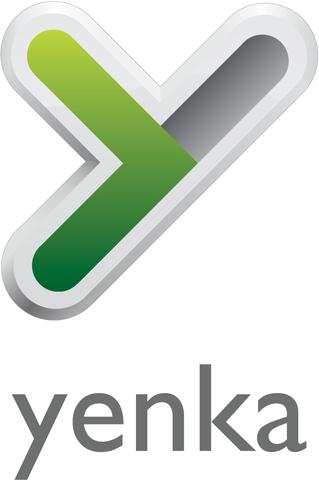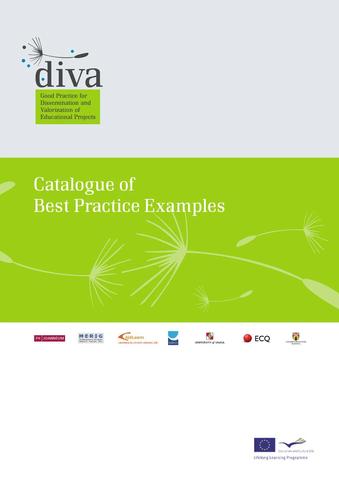Revolutionize Your Teaching with Crocodile Clips’ Next-Generation Education Toolkit, Yenka
“Unlocking Versatility: Discover the Innovative Crocodile Clip for Seamless Connections. Enhance your electrical and DIY projects with this compact, durable, and easy-to-use clip. From securing wires to organizing cables, our crocodile clip ensures reliable connections, making it an essential tool for professionals and hobbyists alike. Explore limitless possibilities with this versatile accessory.”
1. What is Crocodile Clips and how does it contribute to the field of education?

Crocodile Clips is a company that develops educational software tools, with a focus on science education. They have been providing innovative teaching resources for over 20 years and have made significant contributions to the field of education. Their software tools help educators create interactive lessons and simulations that engage students and enhance their learning experience.
One of the most well-known products from Crocodile Clips is Yenka, which is a new generation software tool designed to support teachers in teaching natural sciences. Yenka offers a wide range of features and capabilities that allow educators to create virtual experiments, simulations, and models in subjects like Mathematics, Physics, Chemistry, and Electronics. This helps students visualize abstract concepts, conduct experiments in a safe environment, and develop a deeper understanding of these subjects.
In addition to Yenka, Crocodile Clips also offers other educational software tools like Virtual Physics Laboratory (VPL) and Virtual Electronics Lab (VEL), which further contribute to the field of education by providing virtual environments where students can explore complex scientific concepts. These tools enable teachers to provide hands-on learning experiences even when access to physical laboratories or equipment is limited.
Overall, Crocodile Clips plays a vital role in enhancing science education by providing innovative software tools that empower educators and engage students in interactive learning experiences.
2. How does Yenka, the new generation software tool from Crocodile Clips, support teachers in teaching natural sciences?

Yenka is specifically designed to support teachers in teaching natural sciences such as Mathematics, Physics, Chemistry, and Electronics. It provides a platform where educators can create virtual experiments, simulations, and models that help students understand complex scientific concepts visually.
With Yenka’s intuitive interface and extensive library of pre-built models and activities, teachers can easily design interactive lessons that cater to their specific curriculum requirements. The software tool allows teachers to present abstract concepts in a visual and interactive manner, making it easier for students to grasp and retain information.
Yenka also enables teachers to conduct virtual experiments, which is particularly useful when access to physical laboratories or equipment is limited. Students can manipulate variables, observe the outcomes, and analyze the results in real-time. This hands-on approach not only enhances their understanding of scientific principles but also develops their critical thinking and problem-solving skills.
Moreover, Yenka provides immediate feedback and assessment features that allow teachers to track students’ progress and identify areas where additional support may be needed. This helps educators personalize their instruction and provide targeted interventions to ensure every student achieves mastery of the subject matter.
In summary, Yenka empowers teachers by providing them with a comprehensive set of tools to create engaging lessons, conduct virtual experiments, and assess student performance in natural sciences.
3. Can you provide some examples of interesting experiments related to Mathematics, Physics, Chemistry, and Electronics that are included in Yenka?

Mathematics:
– Virtual Fractions: Yenka allows students to visualize fractions using virtual manipulatives. They can explore operations such as addition, subtraction, multiplication, and division of fractions while observing how they affect the size and value of the fractions.
– Graphing Quadratic Equations: Students can plot quadratic equations on a coordinate plane using Yenka’s graphing tool. They can manipulate the coefficients of the equation to see how it affects the shape and position of the parabola.
Physics:
– Pendulum Simulation: Yenka provides a realistic pendulum simulation where students can adjust parameters such as length, mass, and initial displacement. They can observe how these variables affect the period and frequency of the pendulum’s motion.
– Circuit Analysis: Yenka allows students to build and analyze electric circuits. They can experiment with different components, modify circuit layouts, and measure voltage, current, and resistance values. This helps them understand the principles of electrical circuits and practice circuit analysis techniques.
Chemistry:
– Chemical Reactions: Yenka provides a virtual chemistry lab where students can perform various chemical reactions. They can mix different substances, observe color changes, gas production, and temperature variations. This allows them to explore reaction kinetics, stoichiometry, and reaction types without the risks associated with handling chemicals in a physical laboratory.
– pH Scale: Students can use Yenka to understand the concept of pH by exploring the pH scale and performing acid-base titrations. They can observe color changes using indicators and measure pH values to determine the acidity or alkalinity of different solutions.
Electronics:
– Circuit Design: Yenka enables students to design electronic circuits by selecting components from a library and connecting them together on a virtual breadboard. They can test their designs for functionality and troubleshoot any issues before implementing them in real-life projects.
– Logic Gates: Students can explore digital logic circuits using Yenka’s logic gate simulation tool. They can build circuits using basic logic gates such as AND, OR, NOT, and XOR gates, and observe how changing inputs affects the output states.
These examples showcase just a few of the many experiments available in Yenka for Mathematics, Physics, Chemistry, and Electronics. The software tool offers a vast array of simulations that cover various topics in these subjects to make learning more interactive and engaging for students.
4. In what ways does Yenka empower educators to enhance their teaching effectiveness?
Yenka is a cutting-edge educational software tool from Crocodile Clips that empowers educators to greatly enhance their teaching effectiveness. With its innovative features and capabilities, Yenka provides teachers with a powerful tool to engage students and make learning more interactive and exciting.
One way Yenka empowers educators is through its extensive library of interactive simulations and experiments in various subjects such as mathematics, physics, chemistry, and electronics. These simulations allow teachers to create virtual hands-on experiences for their students, enabling them to explore concepts in a more visual and practical manner. By incorporating these simulations into their lessons, teachers can capture students’ attention and facilitate a deeper understanding of complex topics.
Moreover, Yenka offers a range of customizable resources that enable teachers to create personalized lessons tailored to the specific needs of their students. Whether it’s creating interactive quizzes, designing virtual circuits, or developing dynamic mathematical models, Yenka equips educators with the tools they need to foster active learning environments.
In addition, Yenka provides real-time data analysis capabilities that allow teachers to monitor students’ progress and identify areas where additional support may be needed. This feedback enables teachers to provide targeted interventions and adjust their instructional strategies accordingly, ensuring individualized learning experiences.
Overall, Yenka revolutionizes the way educators teach by providing them with the necessary tools and resources to enhance engagement, promote critical thinking skills, and ultimately improve student outcomes.
Advantages of Yenka for Educators:
– Access to an extensive library of interactive simulations and experiments
– Customizable resources for creating personalized lessons
– Real-time data analysis for monitoring student progress
Benefits of Incorporating Yenka into Classroom Instruction:
– Enhanced student engagement through hands-on virtual experiences
– Promotion of critical thinking skills through active learning
– Improved student outcomes through personalized instruction
5. How does Yenka differ from traditional educational software tools in terms of its features and capabilities?
Yenka stands out from traditional educational software tools due to its advanced features and capabilities. Unlike other software tools that may offer limited functionality, Yenka provides a wide range of tools and simulations that can be used in various subjects, including math, physics, chemistry, and electronics. With Yenka, teachers have access to a comprehensive library of interactive models and experiments that allow students to explore concepts in a hands-on manner.
One key differentiating factor of Yenka is its user-friendly interface. The software has been designed with educators in mind, making it easy for them to create custom simulations or adapt existing ones. This flexibility enables teachers to tailor lessons to suit the specific needs of their students, fostering engagement and enhancing learning outcomes.
Additionally, Yenka offers real-time analysis and data visualization features that empower teachers to monitor student progress and understand their strengths and weaknesses more effectively. This allows for targeted instruction and personalized feedback. The software also allows for collaborative work, enabling students to work together on projects or experiments virtually.
Overall, Yenka sets itself apart from traditional educational software by providing a comprehensive suite of tools, a user-friendly interface for customization, real-time analysis capabilities, and opportunities for collaboration among students.
Key Features:
– Wide range of tools and simulations across multiple subjects
– User-friendly interface for customization
– Real-time analysis and data visualization capabilities
Benefits:
– Enhanced student engagement through hands-on exploration
– Personalized instruction through targeted feedback
– Collaboration opportunities among students
6. What advantages does Yenka offer over other similar software tools in terms of supporting natural science subjects?

When it comes to supporting natural science subjects such as biology, physics, and chemistry, Yenka offers several advantages over other similar software tools. One of the main advantages is the extensive library of interactive models and experiments specifically designed for these subjects.
Yenka provides detailed simulations that accurately depict natural processes and phenomena, allowing students to visualize and understand complex concepts more easily. For example, in biology, Yenka offers interactive models that illustrate various biological systems, enabling students to explore topics such as genetics or human anatomy in a virtual and interactive environment. In physics, Yenka’s simulations include mechanics, optics, and electromagnetism, helping students grasp fundamental principles through virtual experiments.
Moreover, Yenka’s simulations go beyond basic visuals by offering real-time analysis features. Students can collect data during an experiment or simulation and analyze it directly within the software. This allows for a deeper understanding of scientific concepts and strengthens critical thinking skills.
Another advantage of Yenka is its adaptability to different learning styles and levels. The software provides options for differentiated instruction, allowing teachers to adjust simulations based on individual student needs. This personalized approach promotes inclusivity and ensures that all students can actively participate in science lessons.
In summary, Yenka excels in supporting natural science subjects by providing a comprehensive library of interactive models and experiments that foster understanding and engagement. Its real-time analysis features and adaptability further enhance the learning experience for students.
Advantages:
– Extensive library of interactive models and experiments
– Accurate depiction of natural processes
– Real-time analysis capabilities
Benefits:
– Enhanced visualization and understanding of complex concepts
– Development of critical thinking skills through data analysis
– Adaptability to different learning styles
Benefits of Yenka for teachers
Yenka is a powerful educational modeling software that offers numerous benefits for teachers in their classroom instruction. Incorporating Yenka into their teaching practices can enhance the learning experience and help students grasp complex concepts more effectively. Here are some key advantages that teachers can enjoy by utilizing Yenka:
1. Interactive and engaging learning:
Yenka provides a wide range of interesting experiments and simulations in subjects such as Mathematics, Physics, Chemistry, and Electronics. These interactive tools offer a hands-on approach to learning, allowing students to actively participate and explore different scientific phenomena. With Yenka, teachers can create dynamic lessons that capture students’ attention and foster a deeper understanding of the subject matter.
2. Real-world application:
One of the significant benefits of incorporating Yenka into classroom instruction is its ability to bridge the gap between theoretical knowledge and practical application. Through its simulations and models, Yenka allows students to visualize abstract concepts in a real-world context. This helps them connect theory with reality, making their learning experience more meaningful and applicable to everyday life situations.
Moreover, Yenka enables teachers to demonstrate complex experiments or processes that may be difficult or costly to conduct in a traditional classroom setting. By using virtual simulations, teachers can provide students with valuable insights into various scientific phenomena without the need for expensive equipment or materials.
3. Customization and flexibility:
Yenka offers a flexible platform that allows teachers to customize their lessons according to the specific needs and abilities of their students. The software offers a variety of pre-built models and resources that can be easily tailored to align with individual lesson objectives or curriculum requirements.
Furthermore, Yenka provides teachers with the option to create their own models from scratch or modify existing ones. This gives educators the freedom to design activities and experiments that cater to the unique learning styles and preferences of their students. Such customization allows for a more personalized and effective teaching approach that promotes student engagement and success.
In summary, Yenka serves as an invaluable tool for teachers in enhancing classroom instruction. Its interactive nature, real-world application, and flexibility enable educators to create engaging lessons that foster deeper understanding and interest among students. By incorporating Yenka into their teaching practices, teachers can optimize the learning experience and empower their students with valuable scientific knowledge.
In summary, the crocodile clip is a versatile and practical tool used in various industries for secure and efficient electrical connections. With its strong grip and easy-to-use design, it offers a reliable solution for professionals and DIY enthusiasts alike. Whether used in electronics, automotive, or other applications, the crocodile clip remains a staple tool for ensuring safe and effective electrical connections.
